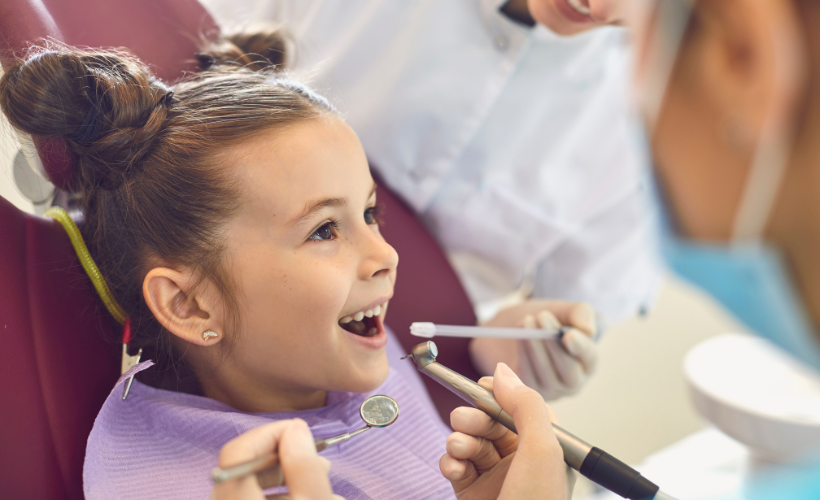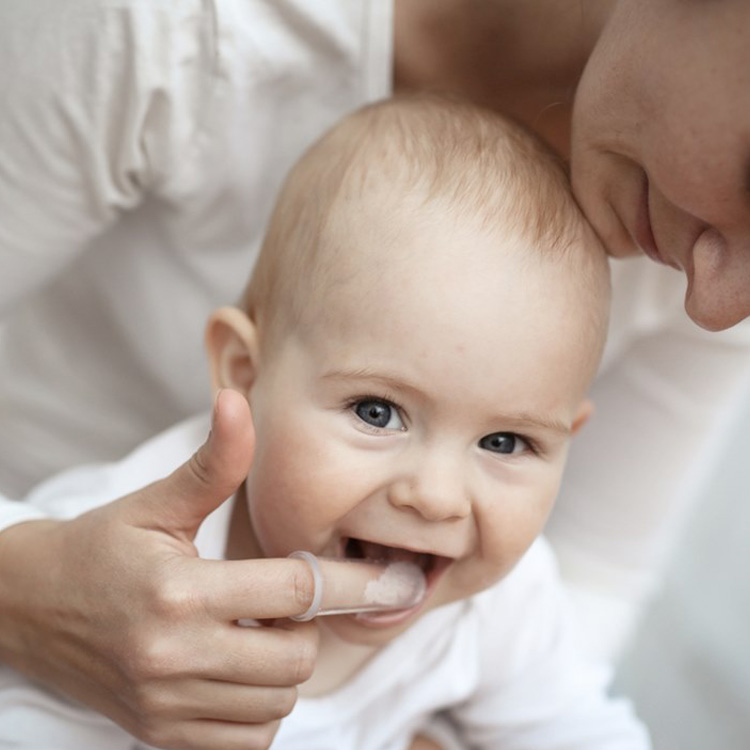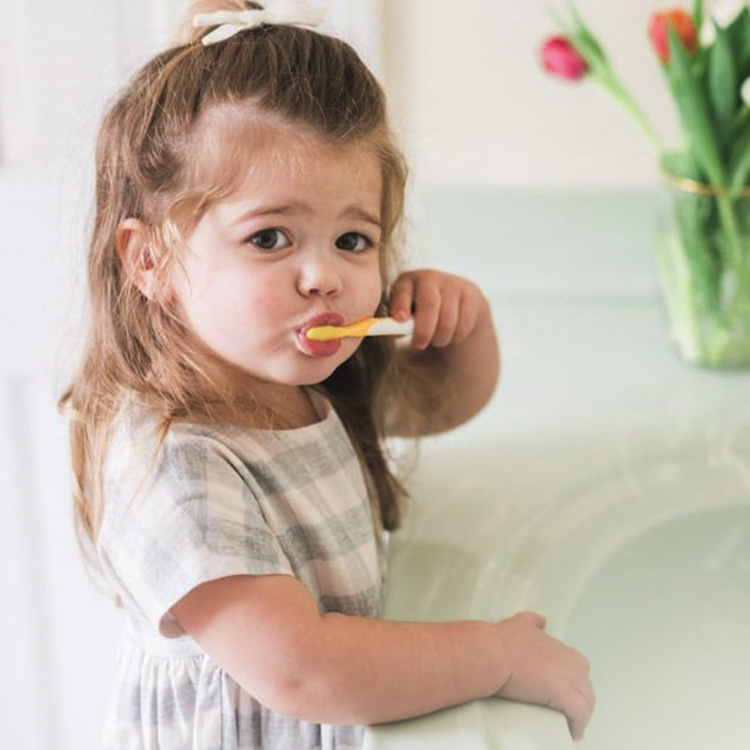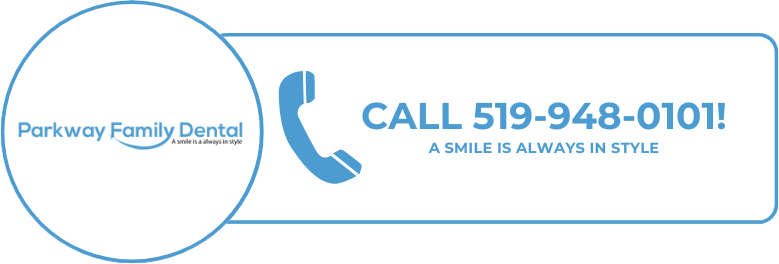The Helpful Guide to Children’s Dental Health for Parents
Your child’s oral health and dental hygiene are huge responsibilities. If you set a good example for your children at an early age, the more likely they are to make oral care a priority as adults.
Pediatric dental care challenges look different at each stage of your children’s life, but oral hygiene is equally important from infancy to the teenage years.
This guide covers pediatric dentist approved tips for parents navigating good oral hygiene practices for kiddos.
Why is Oral Hygiene So Important for Children?
Baby teeth may not stick around forever, but they can shape how a person views dental hygiene well into adulthood. Learning how to maintain healthy teeth and gums from a young age can help limit the risk of oral health issues later in life.
Oral Health Tips for Parents of Infants
Dental hygiene may not be the first thing on your mind as a new parent looking after a baby- especially when they have no teeth! However, it is still important to pay attention to the overall health of their gums and mouth.
Bacteria still cling to gums, and gentle cleansing after feedings helps remove germs and keep tiny mouths clean. Use a damp cloth or soft-bristled infant toothbrush to lightly rub the gums clean. This can also help soothe teething pains.
As soon as the first tooth appears, you can start using a small dab of fluoride toothpaste on a soft brush. Also, book a dental visit within six months of their first birthday – or whenever the first tooth breaks through.
Tips for Toddler Parents
Toddlers are sponges for information- including habits. If you start early by teaching your toddler to brush their teeth twice a day, it is likely to stick with them as they grow up.
Make it part of your routine, encouraging them to do it themselves as much as possible, but make sure you step in and brush the gumlines to remove any build up. Circular motions are most effective, and make sure the whole tooth is brushed.
It is important to make this part of the day fun. Toddlers can be tough to keep still for two minutes to brush and floss, but perseverance and consistency are key. Play fun songs, pick a colourful toothbrush, and give plenty of praise to them for taking great care of their healthy smile!
Maintaining Health Dental Habits with Young Children
The work you put into making regular dental care at a young age should already start paying off around school age. If you teach your child proper brushing and flossing techniques and habits as toddlers, they can begin to understand why good dental hygiene matters as they get a little older.
Between the ages of four and six, most gum disease and tooth decay issues are related to diet. Limiting what sugary foods and drinks your young child consumes is not just beneficial for their health- it is also crucial for their teeth.
That doesn’t mean they can’t ever have a treat, of course, but managing a balanced diet with low sugar intake can help avoid early dental issues.
Encouraging Independent Dental Care As Your Child Grows
Six or seven is the typical age at which a lot of children are capable of brushing their teeth by themselves- especially if their parents have been teaching proper oral hygiene habits from an early age.
That doesn’t mean you are off the hook entirely- it is still advisable to supervise your child’s oral care routine. Make sure they are spending around two minutes brushing and then flossing afterward.
It is at this point that regular dental check ups become especially important. A pediatric dental specialist can examine your child’s mouth at a dental check up to see how things are going, identify any signs of poor oral hygiene, and guide you on the best ways to maintain healthy teeth at home.
Other Useful Care Tips for Parents and Good Oral Hygiene Habits for Kids
- Arrange regular dental visits throughout childhood. Visit the dentist with your child every six months unless advised differently. This helps monitor development and oral health as baby teeth begin to loosen and new teeth grow in.
- The example you set makes a difference. Brush your teeth at the same time as your child to show them how it is done. Seeing you practice good oral care will encourage your child to do the same.
- If you are going to give a little sugary treat from time to time, try to do it close to teeth brushing time if possible. That way, you reduce the risk of gum irritation and tooth decay.
- Don’t use too much toothpaste, as it can actually be harmful. Babies only need a tab, toddlers a smear, and young children a rice-sized drop. Children over five can use a little more, but it is not necessary to coat the entire brush.
- Adapt the routine to suit your child. There are plenty of tips for parents to get their kids to brush their teeth, but the same thing won’t work for everyone. Think about what types of encouragement your child responds well to, and use it to shape your routine and make dental care fun.
Encourage and Maintain Oral Health for Your Child
Oral health for kids starts at home- and it starts early. It is never too soon to introduce teeth cleaning to your little ones. In fact- the sooner you start, the better.
From wiping baby gums to letting your child brush their teeth independently- the example you set can stay with them for life.
Parkway Family Dental is a trusted family dentist in Windsor, Ontario, that specializes in pediatric dentistry. Following these dental care tips for kids will make a big difference, and our team is here to support and monitor your child’s dental health from the time the first tooth emerges until they reach maturity.
Call or email our friendly professional team today to arrange dental appointments for you and your children- and learn more about how to make your child’s journey to a healthy, happy smile a successful one.





